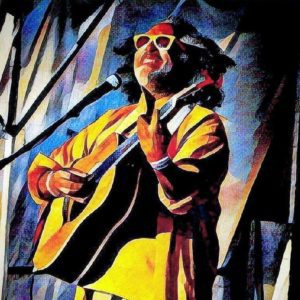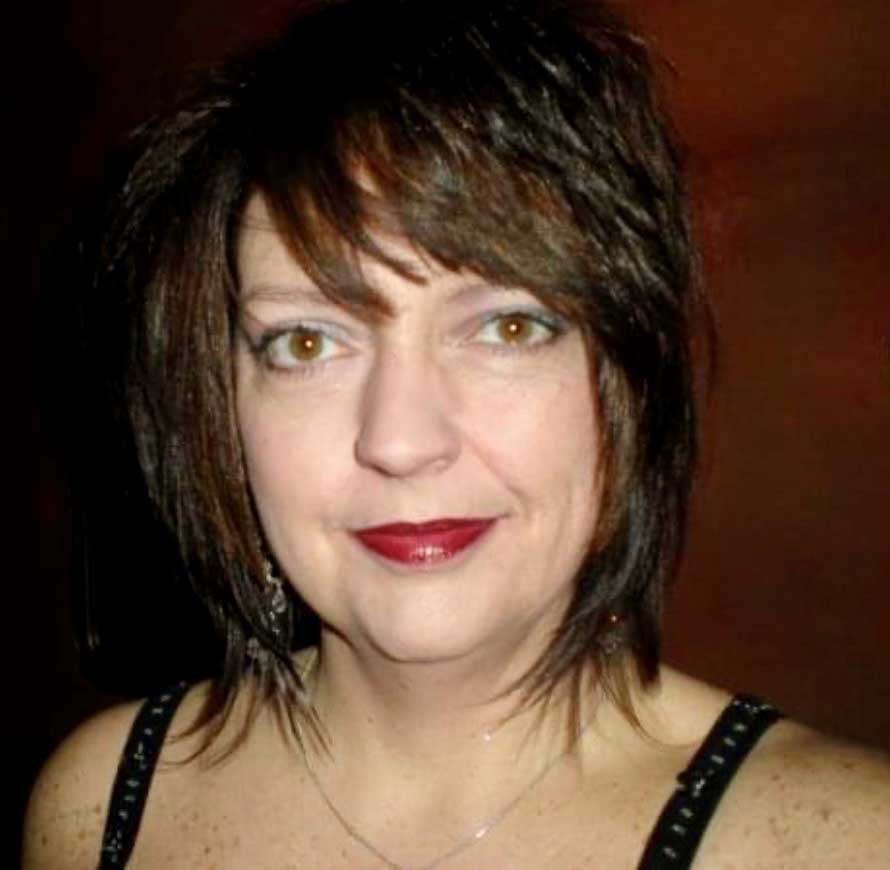By: Audrey Dwyer
Vance Gilbert’s songwriting notebook holds a strong resemblance to his hair.
Pieces of paper protruding out in all different directions separated with envelopes, shopping lists, the backs of bills — all the places one might expect to find quick inspirations.
“I just stuff all of these ideas into this little notebook bound by a rubber band and hope for the best,” said Gilbert before heading into a recording session earlier this week.
Since the early ’90s, his ideas have a way of working out. From jazz singer to following his affinity for storytelling through acoustic folk, Gilbert has shared the stage with the likes of Shawn Colvin, Aretha Franklin, Arlo Guthrie, Anita Baker, Paul Reiser and the Subdudes. He’s opened more than 140 shows for comedian George Carlin and recorded 12 albums, including an album with Ellis Paul.
Gilbert will make his way to Steamboat Springs to kick off the 2017-18 Singer Songwriter Series at 7 p.m. Saturday at the Chief Theater. Special guests opening the show will be local musicians Randy Kelley and Jon Gibbs.
Earlier this week Explore Steamboat had a chance to catch up with Gilbert to chat about inspiration behind his poignant stories, his macabre process and the changes he’s witnessed within the music industry.
Explore Steamboat: Who or what inspired you to become a musician? Did you make that decision after you learned how to play guitar?
Vance Gilbert: Yeah, it was late in college, with my first guitar, a no name, 12-string acoustic that I sawed off the top six tuning pegs making a homemade guitar.
Everyone had a guitar at that time – it was the mid ’70s. I don’t think you were allowed to go to college if you didn’t have one.
I just started playing guitar during sophomore year and I thought I had a sound and wanted to explore it at the expense of my biology degree.
I came up with a way of playing guitar out of necessity. I also watched a lot of people I admired when I could see them play. I took three guitar lessons my whole life. But they were seminal, one was a jazz lesson to learn how to play bass lines on a guitar and the other two were how to work my right hand and how to be a little bit more classical. From that, I just started making my own sound.
ES: How do you define yourself as a musician especially for being in this genre that’s all encompassing genre-wise?
VG: The thing about this genre is that there is an audience of people out there who are ready and willing for you to tell them a story. That really was the most important thing.
People want to hear you tell them a story. Whether it’s with a cappella, Celtic singing or with jazz chords, this audience of people wants to hear your story. I think that’s what this genre gives me the opportunity to do.
ES: What kind of stories do you reveal through your music and how do you create those?
VG: I tend to tell more stories about making peace with life and death, with lost love, being angry at both of those things. I hopefully make people feel like they are not alone, that they’re not the only ones being elated or suffering. Everything loves company, not just misery. For me, the lyrics come first, because the lyrics and the story will dictate what the music will be.
ES: Being embedded with the music industry since the ’70s, you’ve seen a lot — what are some of the biggest changes you seen occur?
VG: Going into the studio now, I’m thinking about what people can actually do in the industry today with the synthesized or canned, generic, prerecorded tracks, stuff.
After working with Mike Posner this summer, who is looking at recording a few of my songs, the stuff they were using as the background, it’s crazy — there wasn’t a drummer to be seen.
When you listen to it, it’s hard to tell initially if there’s an actual drummer in the studio, but in reality it’s all stuff they pull from files. It’s like packaged meals, but that taste pretty good. However, you have to be supremely well rounded to use that stuff, you can’t just throw tracks around.
You almost have to play the drums yourself, but you’re not sitting behind the drum kit per se. You’ve got a mouse, screen and headphones and that’s it.
ES: Do you think pre recorded tracks take away from the music-making process with a full band that’s able to create that raw energy of a live show in the studio?
In the end, you’re just trying to make music. If I go to record, I like to have a full band in the studio because there’s that feel. You can’t replace that feel with canned stuff. I don’t care how great the bass player is or how great the singer sings over top of it, there’s nothing like the feel of the whole thing going on in the room at the time.
ES: What is it that drives you to be a musician? Do you feel that inherent need to be a singer songwriter?
VG: First of all I think I have a particular sound – I’m a pretty decent singer. My pitch can be kind of wild as I’m looking back at a few recordings today, but I’ve got a sound and a story to tell.
I think I would be wasting the world’s time if I didn’t do something with that. That sounds so high pollutant and snotty but that’s not it. I have a story to tell and I would be amiss if I didn’t tell it. And tell it with a decent voice, clever lyrics and pretty decent guitar playing.
To see the original article, click here


 Music industry consultant and publicist Ginny Shea has garnered international exposure for her clients through radio and video promotion, print media, and her vast industry network.
Music industry consultant and publicist Ginny Shea has garnered international exposure for her clients through radio and video promotion, print media, and her vast industry network.